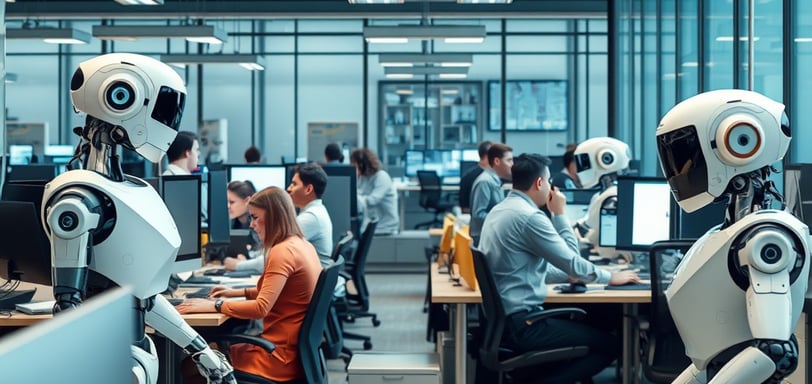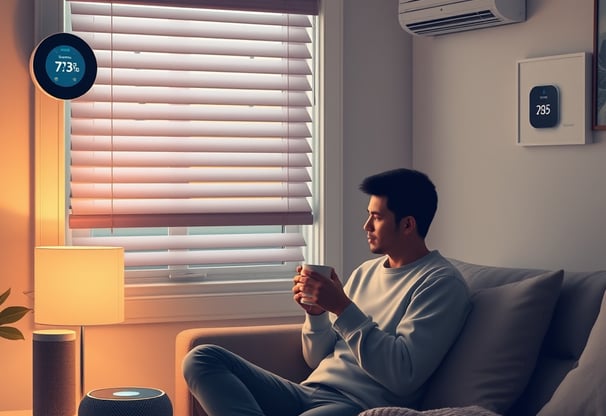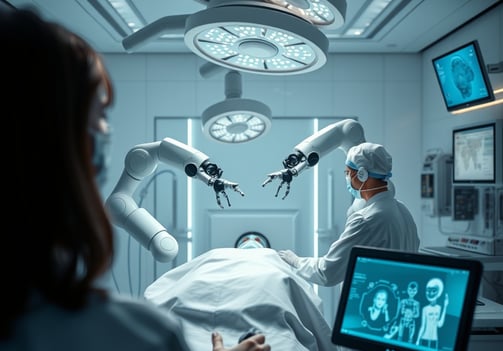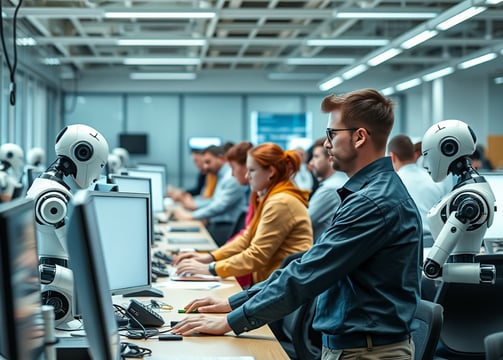AI Revolution: How Artificial Intelligence is Redefining Our Lives
Discover how AI is shaping industries, from healthcare and education to entertainment and personal assistants, and what this means for the future of work


In the 21st century, a quiet revolution is underway, powered by artificial intelligence (AI). Unlike revolutions of the past, this one isn’t marked by dramatic battles or bold declarations. Instead, it’s characterized by algorithms, neural networks, and innovations that are quietly reshaping the very fabric of our lives. AI is no longer the stuff of science fiction; it’s the engine driving our present and charting the course for our future. From healthcare to entertainment, from work to play, artificial intelligence is leaving its indelible mark. So, grab a coffee (or let a robot brew one for you), and let’s dive into how AI is redefining our lives.
The Age of Smart Living
Imagine waking up to an alarm clock that doesn’t just wake you up but knows the optimal time based on your sleep patterns. Your thermostat has already adjusted the temperature of your home to a comfortable level, and your virtual assistant is ready with the day’s weather, news, and reminders. This isn’t the future; this is today, thanks to AI.
AI is at the heart of smart homes, enabling devices to communicate with each other and learn from your preferences. Smart speakers like Alexa and Google Home are the tip of the iceberg. They’re just the friendly voice of a complex network of interconnected devices making your life more convenient. But don’t get too comfortable — one day, your fridge might judge your late-night ice cream habit. ("Do you really need that second pint of Rocky Road?")
Transforming Healthcare
One of the most profound impacts of AI is in healthcare. Imagine a world where diseases are detected before symptoms appear, surgeries are planned with robotic precision, and treatments are tailored specifically to your genetic makeup. AI makes this possible.
Take cancer detection, for example. AI algorithms can analyze medical images with a level of accuracy that surpasses human doctors in some cases. IBM’s Watson Health is a prime example of AI revolutionizing diagnosis and treatment plans. Similarly, AI-driven wearables monitor patients in real time, alerting doctors to potential issues before they escalate.
Here’s a joke for you: Why did the robot go to therapy? It had too many "complex" feelings to process.
Redefining the Workplace
AI is transforming the workplace at a pace we’ve never seen before. Tasks that were once time-consuming and monotonous are now automated. Whether it’s chatbots handling customer service or algorithms optimizing supply chains, businesses are becoming more efficient and productive.
But let’s address the elephant in the room: job displacement. While AI is creating new opportunities, it’s also making some roles obsolete. The key is adaptation. As one wise man once said, "The best way to predict the future is to create it."
For example, coders are increasingly using AI tools like GitHub Copilot to speed up development, while AI-powered analytics are helping marketers understand consumer behavior like never before. Even artists are collaborating with AI to create stunning visuals and music.
AI in Entertainment
If you’ve ever been hooked on a Netflix series or found the perfect Spotify playlist, you’ve experienced AI in action. These platforms use AI to analyze your preferences and recommend content you’re likely to love. AI is not just a participant in entertainment; it’s becoming a creator. AI-generated music, art, and even movies are making waves in creative industries.
Remember when Will Smith joked in I, Robot about not trusting machines? Fast forward to today, and we’re happily letting them curate our binge-watching sessions. ("Just one more episode... or three.")
Navigating Ethical Challenges
With great power comes great responsibility. AI has immense potential, but it also raises critical ethical questions. How do we ensure AI is unbiased? How do we protect our privacy? And who is accountable when an autonomous vehicle makes a mistake?
"Technology is a useful servant but a dangerous master," warned Christian Lous Lange. As AI grows more integrated into society, these issues demand our attention. It’s not just about what AI can do, but what it should do.
A Future Worth Imagining
The AI revolution is far from over. Autonomous vehicles, AI-driven education, and breakthroughs we can’t yet fathom are just around the corner. The challenge for humanity is to harness this powerful technology responsibly, ensuring it enhances our lives without compromising our values.
As we marvel at what AI has achieved and anticipate what’s to come, let’s remember: The future isn’t written in code alone. It’s written in our choices and how we choose to integrate these advancements into our lives. So, the next time you ask Siri or Google a question, take a moment to appreciate the brilliance behind the response. After all, even a machine that answers your random 2 AM queries deserves a little gratitude.






